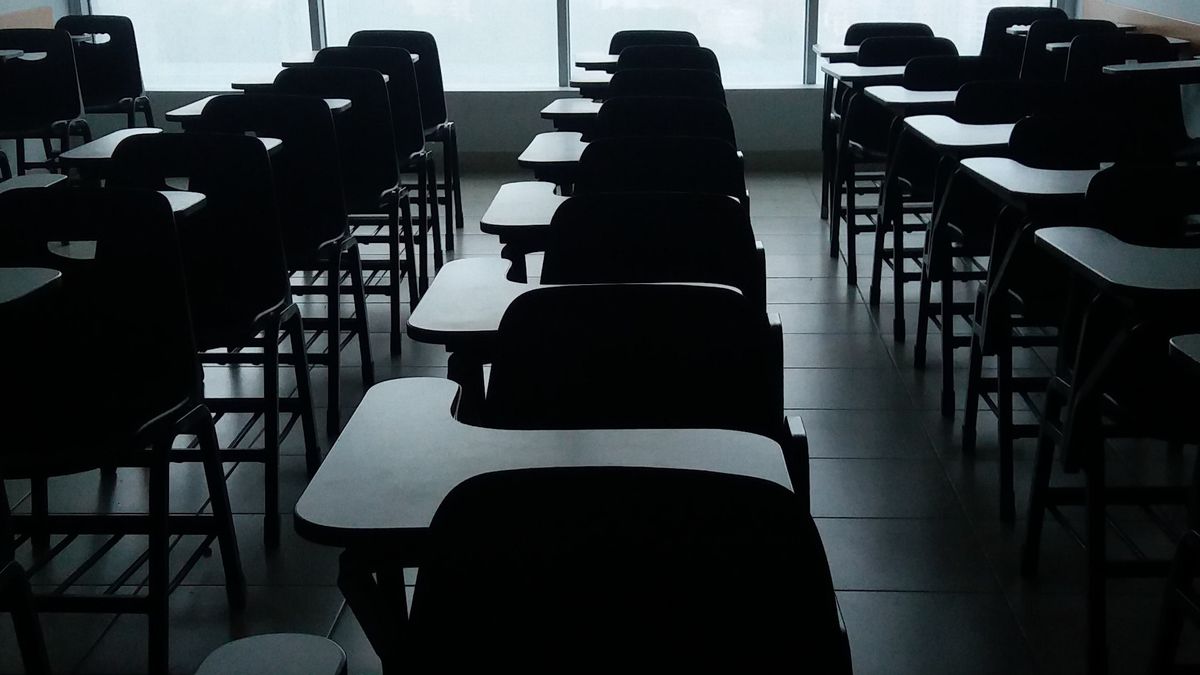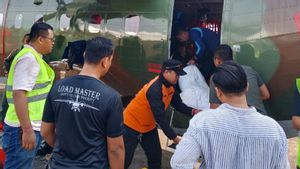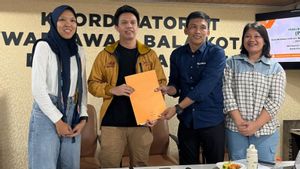JAKARTA - The chairman of Commission X of the DPR RI, Syaiful Huda, responded to the proposal to stop face-to-face learning (PTM) in schools following the outbreak of COVID-19 cases, one of which was in DKI Jakarta. Huda emphasized that the implementation of PTM must still refer to the Joint Decree (SKB) of the 4 Ministers regarding the implementation of learning during the pandemic. In the Ministerial Decree 4, it is clearly stated that PTM can be implemented if PPKM is an area at level I and II. "As long as PPKM is still at level I and II, face-to-face learning can still be done with the Health protocol and strict COVID-19 control scheme," Huda told VOI, Thursday, February 3.
According to the PKB politician, the balance of the COVID-19 control scheme and the implementation of PTM must be maintained properly. As long as the situation allows, said Huda, PTM must continue to be carried out considering the huge negative impact of learning loss on students in Indonesia during the two years of the COVID-19 pandemic. In progress, the gas and brake policies in PTM must still be carried out so that the potential for learning loss can be minimized, "explained Huda. The West Java legislator admitted that he agreed with the PTM evaluation as the daily COVID-19 cases increased significantly. However, he said, the evaluation of PTM must be carried out selectively and measurably.
"I agree that there must be an evaluation of the implementation of PTM, even though I know that every local government already has a COVID-19 control scheme when PTM is carried out," he said. As for the COVID-19 control scheme during PTM, Huda continued, for example, it can be seen in education units within the DKI Jakarta Provincial Government. When there is only one student or education staff who is indicated as positive for COVID-19, the school administrator immediately stops the PTM for a certain period of time. "After contact tracing, spraying disinfectants in the school environment, and it is considered safe, then PTM will be carried out again," he said.
As an illustration in DKI Jakarta, said Huda, since the first PTM was implemented until mid-January 2022, there were around 90 schools that were closed because there were students or teachers infected with COVID-19. However, currently 88 schools have reopened and only 2 schools are still stopping PTM. The Depok City Government also carried out the same pattern, where they also carried out PTM with a strict COVID-19 control scheme. "This is an indicator that the regional government and education unit organizers have their own control schemes, which on the one hand remain vigilant about the spread of COVID-19 and on the other hand ensures that PTM can continue to be implemented," concluded Huda. Previously, DKI Jakarta Governor Anies Baswedan suggested to Luhut Binsar Panjaitan as the Java-Bali PPKM Coordinator to stop face-to-face learning (PTM). Anies asked that learning be transferred online for the next month. "I communicated with Pak Luhut Pandjaitan as the head of the Java-Bali COVID Task Force to submit a proposal for Jakarta PTM or face-to-face learning to be abolished for the next month," Anies told reporters, Wednesday, February 2nd.
The former Minister of Education and Culture said that his proposal is currently in the discussion stage. He believes this proposal can reduce the risk of transmission of cases to students during PTM.
"We are well aware that conditions in Jakarta require children to reduce risks and the suggestion from Jakarta is that we stop PTM and we 100 percent PJJ or study from home. What will the results be, we will update later," he added. Anies said the learning provisions Face-to-face meetings have so far been regulated through a 4 Ministerial Decree which refers to the Instruction of the Minister of Home Affairs. On that basis, he said all policies were regulated by the central government.
"It's different when we used the PSBB regime. At the time of PSBB, the PTM decision was regulated through the governor's authority. Now it is regulated through a decision from the central government," he explained.
The English, Chinese, Japanese, Arabic, and French versions are automatically generated by the AI. So there may still be inaccuracies in translating, please always see Indonesian as our main language. (system supported by DigitalSiber.id)












